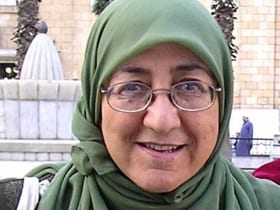In the pages of the Christian Science Monitor, Afghan Institute of Learning founder Sakena Yacoobi offers a passionate commentary about lowering the cultural barriers to educating women and girls with outreach that includes males, too.
“The women who come to our centers feel the same way,” she says of AIL’s centers, whose health and education efforts were recognized with the Henry R. Kravis Prize in Nonprofit Leadership in 2009. “Men and boys need to be educated, not ignored.”
Development efforts in disadvantaged countries can cut two ways, especially when those efforts highlight and publicize one group to such a degree that another group feels forgotten. Yacoobi’s Monitor article, “In Afghanistan, teaching men that education is not a threat,” points out that while AIL’s work has focused on one specific segment, the actual goal is more universal, more all-embracing than her organization’s stated mission.
“Educated, wise men,” she writes, thinking of her own father, who supported her pursuit of an education (she holds U.S. degrees from the University of the Pacific and Loma Linda University), “do not abuse women or children and recognize the worth and value of women and children.”
Since AIL’s founding in 1995, the lives of more than 10 million people have been affected by the organization’s work. Yacoobi, however, acknowledges that this impact must be broader, and more inclusive, as she shares in the following anecdote, which is included in the Monitor article:
One day in early 2002, I went with my female staff to visit one of our Women’s Learning Centers in rural Kabul. Suddenly a group of teenage boys with weapons appeared, blocking the road.
Our driver stopped the car and asked what they wanted. Pointing to me, they said, “We want to talk to her.” Although my heart was pounding, I opened the door, got out of the car and asked them what they wanted. Their leader said, “Every day we watch your car come and visit your centers for women and girls. They are learning to read. What about us? We have been fighting and living in caves since we were little boys. Now we are too old for school, but we want to study. What can you do for us?”
RELATED
- Visit here to learn more about Sakena Yacoobi at the Kravis Prize website
- Visit here to learn more about Yacoobi’s recent article in the Christian Science Monitor

